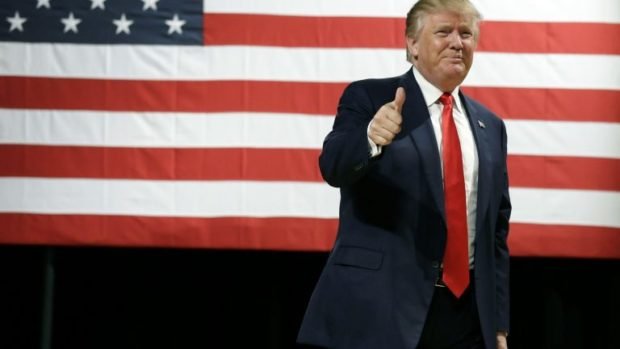Trump Administration Sanctions Russian Bank for Attempting to Circumvent Sanctions on Venezuela
Washington – Today, the U.S. Department of the Treasury’s Office of Foreign Assets Control (OFAC) designated Evrofinance Mosnarbank, a Moscow-based bank that is jointly owned by Russian and Venezuelan state-owned companies. As the Treasury has continued to escalate the use of sanctions against the illegitimate regime of former President Nicolas Maduro, the net assets of Evrofinance Mosnarbank (Evrofinance) bank grew over 50 percent during 2018. Today’s action, taken pursuant to Executive Order (E.O.) 13850, targets a foreign financial institution that has materially assisted, sponsored, or provided financial, material, or technological support for, or goods or services to or in support of, Petroleos de Venezuela S.A. (PdVSA), which is itself an entity that has long been a vehicle for corruption, embezzlement, and money laundering by Maduro and his cronies. PdVSA, which was designated for operating in the oil sector of Venezuela on January 28, 2019, is a Venezuelan state-owned oil company.
“The illegitimate Maduro regime has profited off of the suffering of the Venezuelan people,” said Treasury Secretary Steven T. Mnuchin. “This action demonstrates that the United States will take action against foreign financial institutions that sustain the illegitimate Maduro regime and contribute to the economic collapse and humanitarian crisis plaguing the people of Venezuela.”
Evrofinance Mosnarbank, a Lifeline for the Illegitimate Regime
As the United States and over 50 countries have recognized Venezuelan Interim President and President of the Venezuelan National Assembly, Juan Guaidó, Maduro is increasingly isolated and desperate for lifelines from Russia. Russia has been a long-time ally of Venezuela, dating back to Maduro’s predecessor, Hugo Chavez (Chavez). In 2011, Chavez bought a 49 percent stake in Evrofinance through the Venezuelan National Development Fund, or Fondo De Desarrollo Nacional Fonden SA, most commonly known as FONDEN. At the time of incorporation, Russia’s Gazprombank, in which the majority Russian state-owned gas producer Gazprom is a shareholder, and Russian state bank, VTB Bank, which is Russia’s second largest bank, each owned a 25 percent stake in Evrofinance. Evrofinance was founded as a bi-national bank to fund joint Russia-Venezuela oil and infrastructure projects. Gazprombank was added to OFAC’s Sectoral Sanctions Identifications (SSI) List on July 16, 2014, and VTB Bank was added to the SSI List on July 29, 2014.
While Venezuela is in the midst of a historic economic and humanitarian collapse caused by extreme corruption and mismanagement, and major U.S. and European-based financial institutions have cut off ties with the illegitimate Maduro regime because of the significant risks inherent in dealing with Venezuela, Evrofinance assets have soared and the bank continues to maintain its significant relationship with the illegitimate regime.
When the failed Venezuelan cryptocurrency, called the Petro, launched in 2018, Evrofinance emerged as the primary international financial institution willing to finance the Petro. Early investors in the Petro were invited to buy the cryptocurrency by wiring funds to a Venezuelan government account at Evrofinance. Evrofinance’s involvement in the Petro demonstrated Maduro’s hope that the Petro would allow Venezuela to circumvent U.S. financial sanctions.
For information about the methods that Venezuelan senior political figures, their associates, and front persons use to move and hide corrupt proceeds, including how they try to exploit the U.S. financial system and real estate market, please refer to FinCEN’s advisories FIN-2017-A006, “Advisory on Widespread Public Corruption in Venezuela,” and FIN-2017-A003, “Advisory to Financial Institutions and Real Estate Firms and Professionals.”
As a result of today’s action, all property and interests in property of this entity, and of any entities that are owned, directly or indirectly, 50 percent or more by this entity, that are in the United States or in the possession or control of U.S. persons are blocked and must be reported to OFAC. OFAC’s regulations generally prohibit all dealings by U.S. persons or within (or transiting) the United States that involve any property or interests in property of blocked or designated persons.
####
Source: U.S. Dept. of the Treasury
Content created by Conservative Daily News is available for re-publication without charge under the Creative Commons license. Visit our syndication page for details.




